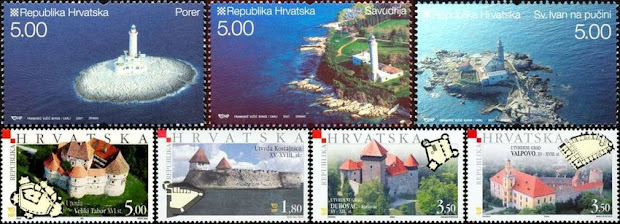Slovenia had the chance, earlier this week, to literally become Croatia's ally. Or rather, to ratify Croatia's NATO membership so that Croatia could join the club Slovenia is already in. However, instead of easing tensions NATO membership proved to be another source of discontent between the two countries.
Slovenia did ratify the protocol that extends NATO membership to its neighbor, but it hasn't send the necessary documents to Washington yet. Responsible for this delay are two Slovenian groups, The Institute of the 25th of June (a reference to the day in 1991 on which Slovenia declared independence) and the non-parliamentary Party of the Slovenian Nation. These groups were afraid that Croatia's accession to NATO (and the EU) would imply Slovenia's consent with the current, heavily contested Croatian-Slovenian border. To make clear that Slovenia does not accept the Croatian territorial claims, the two groups demanded an explicit statement on this matter from the Slovenian parliament. Without this statement, they would try to organize a referendum on Croatia's NATO membership.
 They got their way: "Slovenia's Parliament on Wednesday afternoon adopted a declaration on the protection of the Slovene national interests during the procedure of Croatia's admission into NATO which reads that at the time when Slovenia declared its independence in 1991, it had access to the high seas and that it had control over some other "disputable" points along its border with Croatia."
They got their way: "Slovenia's Parliament on Wednesday afternoon adopted a declaration on the protection of the Slovene national interests during the procedure of Croatia's admission into NATO which reads that at the time when Slovenia declared its independence in 1991, it had access to the high seas and that it had control over some other "disputable" points along its border with Croatia."
Case closed? Not really. The Party of the Slovenian Nation insisted that Croatia should withdraw from some territory and dismantle a border crossing that it considers illegal. This demand is not included in the adopted declaration and therefore the Party of the Slovenian Nation will still try to organize a referendum. A referendum will become inevitable if the party collects 40.000 signatures. Slovenian premier Borut Pahor, meanwhile, is doing his best to convince the Party of the Slovenian Nation that a referendum will further damage Slovenian-Croatian relations.
Like with Croatia, Slovenia is largely ignored by the Western media. I don't think we will see another Balkan war, but if you want to understand why Croats and Slovenes turned into political adversaries, you better keep an eye on Slovenia these days.
Slovenia did ratify the protocol that extends NATO membership to its neighbor, but it hasn't send the necessary documents to Washington yet. Responsible for this delay are two Slovenian groups, The Institute of the 25th of June (a reference to the day in 1991 on which Slovenia declared independence) and the non-parliamentary Party of the Slovenian Nation. These groups were afraid that Croatia's accession to NATO (and the EU) would imply Slovenia's consent with the current, heavily contested Croatian-Slovenian border. To make clear that Slovenia does not accept the Croatian territorial claims, the two groups demanded an explicit statement on this matter from the Slovenian parliament. Without this statement, they would try to organize a referendum on Croatia's NATO membership.
 They got their way: "Slovenia's Parliament on Wednesday afternoon adopted a declaration on the protection of the Slovene national interests during the procedure of Croatia's admission into NATO which reads that at the time when Slovenia declared its independence in 1991, it had access to the high seas and that it had control over some other "disputable" points along its border with Croatia."
They got their way: "Slovenia's Parliament on Wednesday afternoon adopted a declaration on the protection of the Slovene national interests during the procedure of Croatia's admission into NATO which reads that at the time when Slovenia declared its independence in 1991, it had access to the high seas and that it had control over some other "disputable" points along its border with Croatia."Case closed? Not really. The Party of the Slovenian Nation insisted that Croatia should withdraw from some territory and dismantle a border crossing that it considers illegal. This demand is not included in the adopted declaration and therefore the Party of the Slovenian Nation will still try to organize a referendum. A referendum will become inevitable if the party collects 40.000 signatures. Slovenian premier Borut Pahor, meanwhile, is doing his best to convince the Party of the Slovenian Nation that a referendum will further damage Slovenian-Croatian relations.
Like with Croatia, Slovenia is largely ignored by the Western media. I don't think we will see another Balkan war, but if you want to understand why Croats and Slovenes turned into political adversaries, you better keep an eye on Slovenia these days.





0 reacties:
Post a Comment